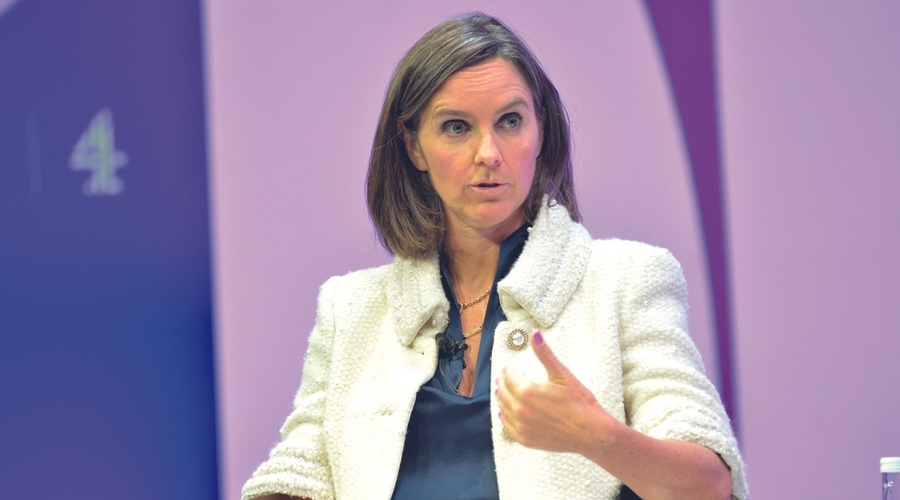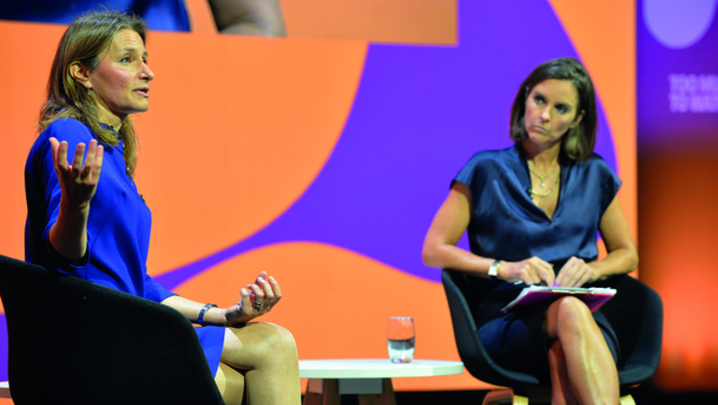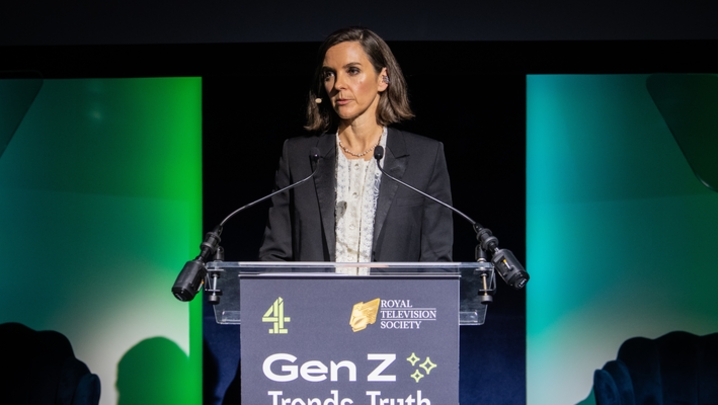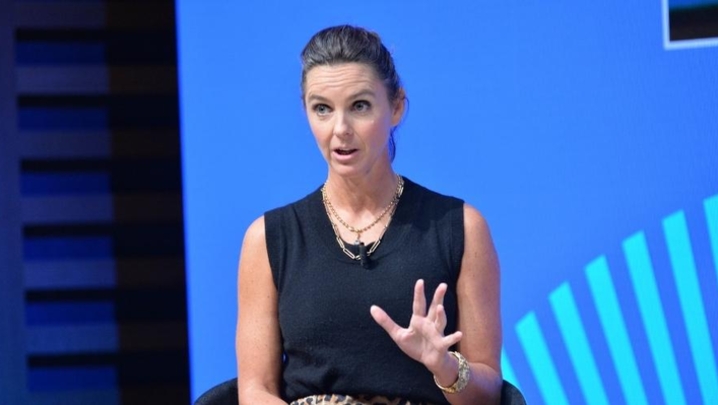Alex Mahon tells the UK TV sector that it is fighting for its life
Introducing the first session of the Convention, Cambridge Chair and Channel 4 CEO, Alex Mahon, posed a stark question: “Is there simply too much content?”
And then a follow-up – “And with content as king, hasn’t distribution now become King Kong?” – before offering some typically honest answers.
“We’ve been in a frantic race for eyeballs, advertising dollars and subscription cash, and that race, like some kind of gigantic global grand prix, has been driven by hubristic spending on video creation.
“Now… we are coming to terms with the reality that this model simply doesn’t work in the ways that we want it to. The uncontrolled proliferation and commodification of content has made content effectively limitless, but it’s also why we feel like there’s too much to watch and sometimes nothing to watch, and why consumers are flipping between streamers like we used to flip between the channels.
“We see every day that there’s not enough money, there aren’t enough eyeballs and there’s too much video.”
Mahon added: “Our race is coming to a juddering halt”, calling for a “great restart”.
New Channel 4 research (see box below) presented a generally optimistic picture of viewer attitudes for the PSBs, but, said Mahon: “We have to urgently recognise that those of us who sit in the UK PSBs are sitting on a generational time bomb.”
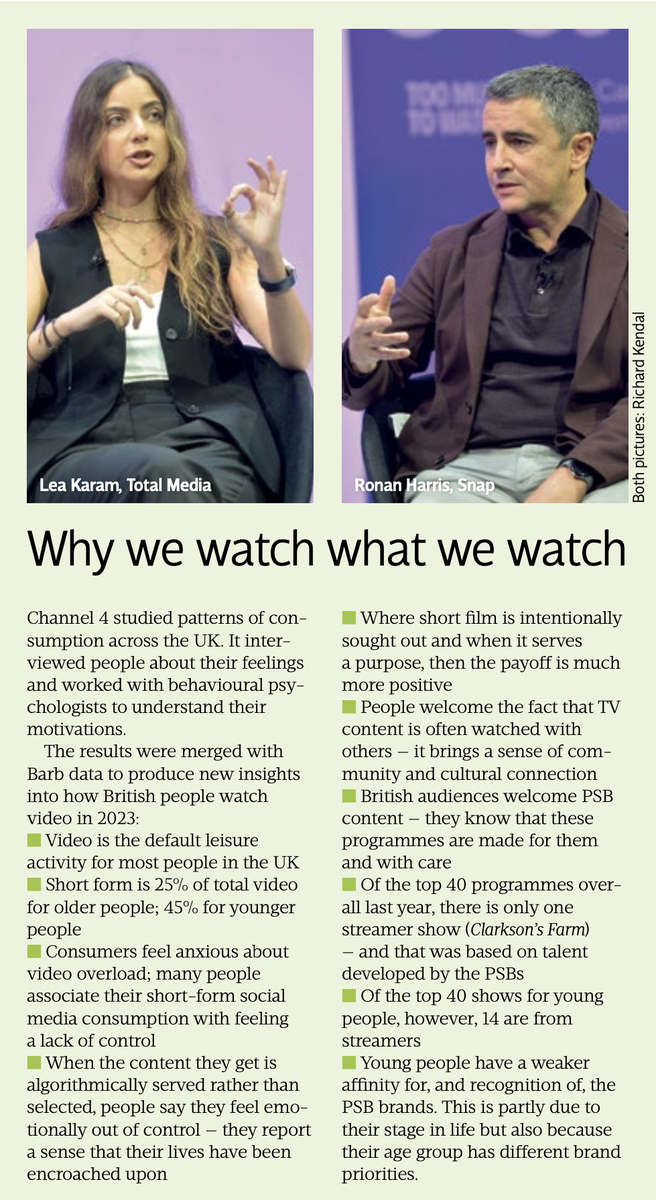
She continued: “PSBs would be dangerously complacent to rely on younger viewers naturally migrating to traditional viewing as they put more candles on their birthday cakes… we have to go hunting for them.”
Mahon drew two main conclusions from the research: “One is that we are fighting for our business lives and, two, is that we may just about be able to win that fight.
“People, even young British people, feel the need for what our content can bring them and, if we make content that they can trust, that is salient, relevant and informative, then they [will] want it more than other content.”
Young people, though, need to be able to find that content. Mahon stressed: “We will have to change your ways of distributing content – it might mean more proactive dating between PSBs and social platforms… it might even need some cross-species meeting.”
British PSBs, she argued, need to present a “united front, a combined effort, to ensure that adequate prominence legislation is passed and passed very soon.
“That’s why, through our jointly owned company Everyone TV, we’ve just announced Freely, a service that will ensure broadband-only homes can get free access to live PSB TV, not just VoD, in the streaming age.
“We need to be sure that valuable and valued British content, which we believe is already relevant to our young people, is also prevalent for them. We can’t expect them to happen upon it.”
Mahon called on a series of experts to offer their thoughts on how consumers could best surf the surfeit of video across ever-increasing platforms to find the standout content and, just as importantly, views that challenged rather than echoed their beliefs.
Behavioural scientist Lea Karam identified four factors behind video consumption: the fear of missing out; decision paralysis; whether you are a maximiser or a satisfier; and filter bubbles and echo chambers.
She explained that consumers can be “anchored way too much in their recent biases [by] algorithmic content”.
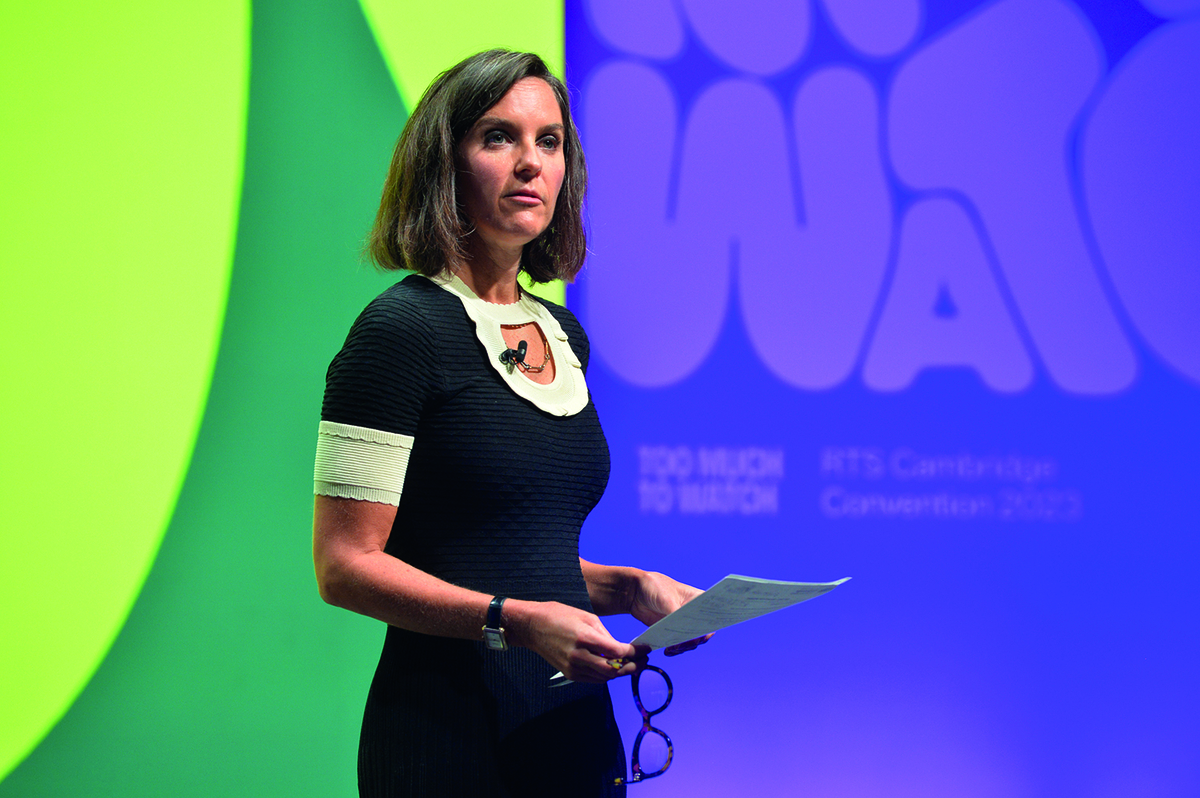
Ronan Harris from Snap (the parent company of Snapchat) said that people come to the platform to “engage with their real friends and family, and often that’s visual communication”.
The content, he added, is “culturally relevant… about the community you’re a part of, and it gives you that happy, positive feeling. I think that results in people wanting to spend more time and creates the positive engagement we see for brands and advertisers.”
Karam warned of the dangers of AI-generated content that consumers return to repeatedly, which becomes their default bias and effectively an echo chamber for their own views. She said: “We need to work hard towards getting [consumers]… to explore new topics and content.”
The behavioural scientist added: “A lot of boys watch content that comes to them that is very sexist, Andrew Tate-type content, and they are constantly bombarded with those types of influencers.
“It’s really important to regulate the algorithm, and it’s also really important for those platforms to [prioritise] discovery pages… if they want to do something for the good of the world.”
Harris added: “That’s how our platform is structured: the first part of video content that you come across is the friends and family content and the stuff that you subscribe to, then it’s to discover, so stories, say, from Channel 4 about The Great British Bake Off or from the BBC about EastEnders… and then the third step is where you go into more of the entertainment video formats.”
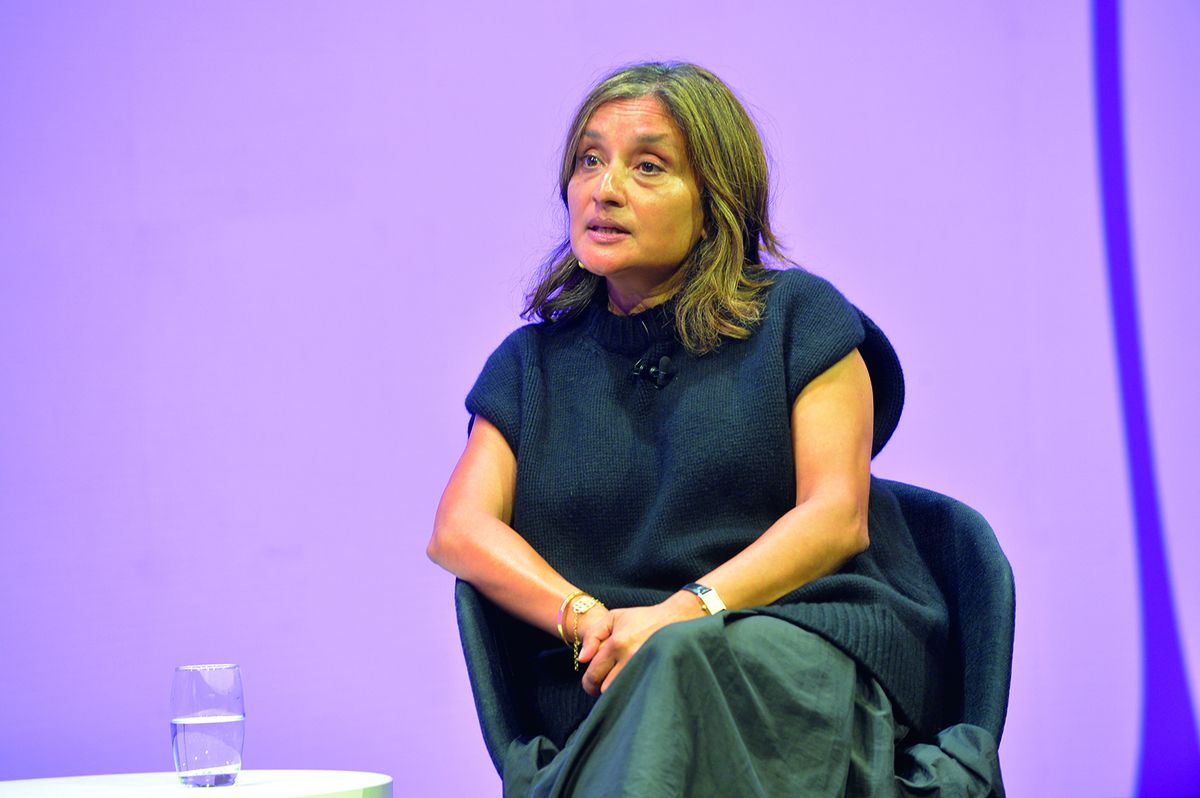
ITV Studios’ Angela Jain said: “There is too much TV to watch… but that’s a bit like saying there are too many books and too much art. I wouldn’t want to diminish the amount of voices there are out there creating new content.
“The challenge is about how you get noticed when there’s so much vying for our collective attention.”
In Jain’s factual genre, asked Mahon, does this mean that content has to become more “salacious”?
No, said Jain, although programme-makers have to respond to market trends, which currently favour reality shows over panel shows and quizzes.
The best shows, she added, tend to be the result of a very British culture of “creative collaboration, between the buyer, the commissioner and us the producer”.
But, asked Mahon, is there a danger that smaller UK PSBs will be left behind, especially by younger viewers?
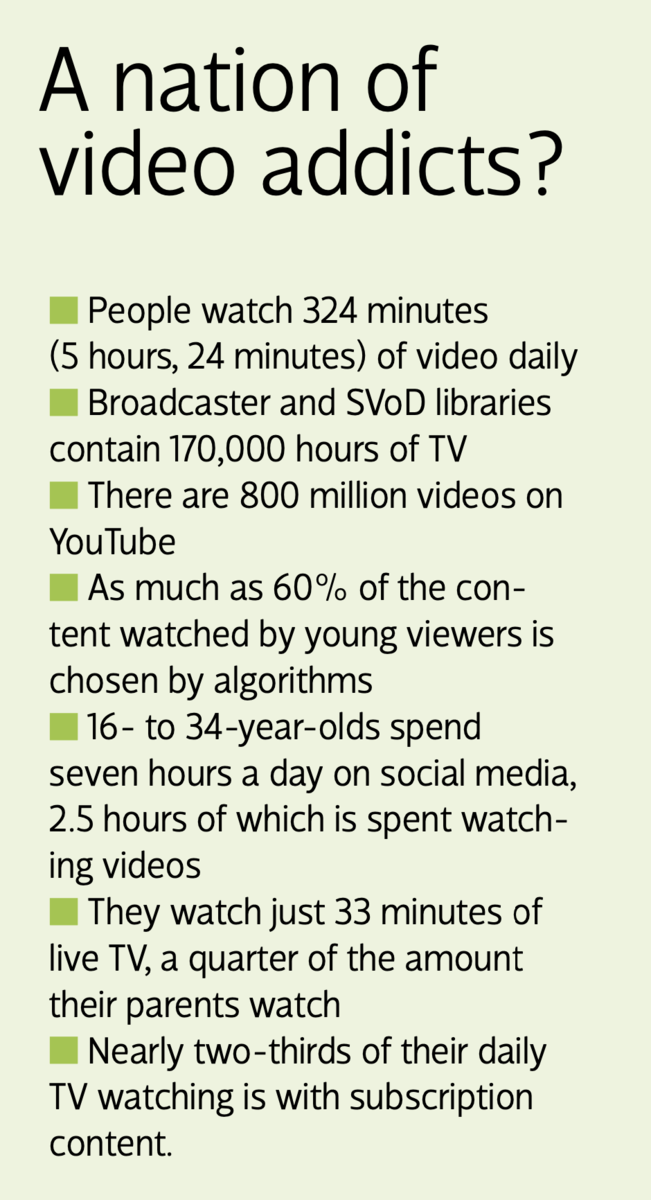
“[Children] have no particular loyalty to anywhere – they will chase the content where they can find it. That doesn’t mean that all is lost for PSBs – it’s about amplifying what [they] do really well: trustworthiness and the way they are able to curate and create a brand identity for bringing kids in.
“You have to work really hard to talk to them where they are and persuade them that something you’ve got to say, they’re going to enjoy, learn from, be excited by and, more importantly, want to share with their peer group, because they are going to be the biggest advocates of making your show a success.”
Mahon asked: “For your children, what do you worry about the most?”
Jain said: “It’s what Lea was talking about, that they will just be fed what they already know and that voyage of discovery will disappear.”
YouTube executive Pedro Pina admitted that there was “a lot of content”, but, more importantly, he said, is that: “There’s a lot more diverse content than ever existed before.
“I’m pretty sure my profile is different from yours. The beauty of platforms like YouTube… is that we can provide the audience with what they want. Everyone who has a camera can produce content.
“Because of all the content needed to be created in order to address your profile, which is different from mine and different from everyone in this room, we just created a massive revolution of creativity in this country.”
Mahon on Russell Brand
‘The allegations made against Russell Brand are horrendous and, as the CEO of Channel 4 and as a woman in our industry, I found the behaviour described in Dispatches, and The Sunday Times and The Times articles disgusting and saddening.
‘The allegations, of course, need to be followed up further and we and the BBC and Banijay are busy investigating. Channel 4 has invited anyone who knows about this behaviour to come to us, we’ve written to all our suppliers to say the same and we’ve set up a process for people to contact us anonymously if they need to.
‘They’re not empty words and gestures from all of us; they are what is meant by our duty of care. We will seek to find out who knew, who was told what, and what was or wasn’t referred up.
‘But what is clear to me is that terrible behaviour towards women was historically tolerated in our industry. The clips we’ve seen as well provide a rather shocking jolt when one realises that what appeared on air [was] not that long ago.
‘The behaviour is less prevalent now, but it’s still a problem and it’s something that we must all confront. There is still change that needs to come and Channel 4 along with those others are at the forefront of that change.’
'Terrible behaviour towards women was historically tolerated in our industry'
Session One, ‘Too Much to Watch’, was introduced and chaired by Channel 4 CEO Alex Mahon, and featured: Ronan Harris, President EMEA, Snap; Angela Jain, Director of Unscripted UK, ITV Studios; Lea Karam, Consulting Director, Behave, Total Media; and Pedro Pina, Vice-President, YouTube EMEA. The producer was Sacha Khari. Report by Matthew Bell.

